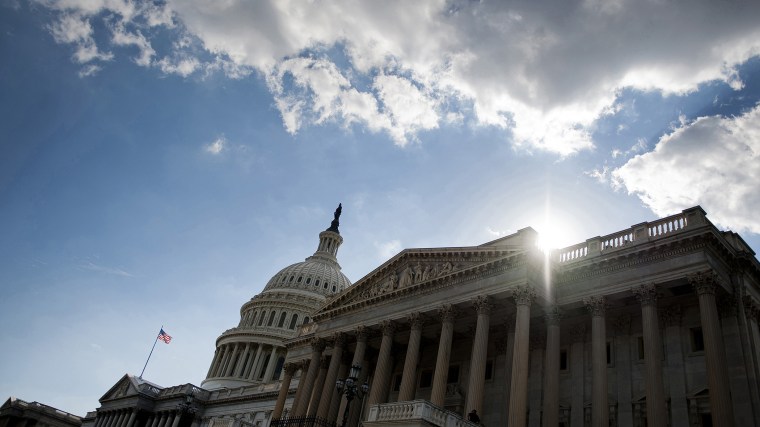It's been 25 years since then-President Bill Clinton first signed the Violence Against Women Act into law, and the measure has generally been seen as uncontroversial ever since. Congress has had to reauthorize the law -- the first comprehensive federal solution to issues such as sexual abuse and domestic violence -- in 2000, 2005, and 2013, and each instance, support was largely bipartisan.
As is often the case in contemporary politics, things are a little different now.
The House on Thursday passed an extension of the Violence Against Women Act, which provides protections for survivors of domestic violence, and includes new gun-related provisions that are opposed by the NRA. [...]The measure, which expired in February, was sponsored by Congressional Black Caucus chairwoman Rep. Karen Bass, D-Calif., and Rep. Brian Fitzpatrick, R-Pa. The bill today, which would extend the law for five years, includes new provisions that would make it harder for domestic abusers to gain access to guns.
It was that last point that was of particular interest.
Under existing law, those convicted of stalking or domestic abuse can be blocked from buying a gun, but the law only applies to spouses, ex-spouses, and/or those who live with a romantic partner. This latest version of the Violence Against Women Act specifically seeks to eliminate the "boyfriend loophole," extending the current policy to anyone in an intimate relationship, regardless of marital status or residence.
It's not a minor detail. As New York magazine's Eric Levitz noted earlier this week, "Women in abusive relationships are five times more likely to be murdered by their partner if he (or, in rare cases, she) owns a firearm. About half of all female homicide victims are killed by intimate partners — and about half of intimate partner homicides are committed by casual dating partners. The fact that federal law bars abusive husbands — but not abusive boyfriends — from owning guns has no criminological justification."
Nevertheless, the National Rifle Association balked and called for the legislation's defeat. A majority of the House didn't care: it passed 263 to 158, with 33 House Republicans joining the Democratic majority, while one conservative Democrat voted with the GOP minority.
The right wasn't pleased. Rep. Mo Brooks' (R-Ala.) reaction to the bill was especially memorable: he called the latest iteration of VAWA "radical legislation" that "undermines the Right to Bear Arms, Due Process, biology, and religion while promoting open borders and illegal aliens."
I can more or less understand the bulk of the Alabama congressman's complaints, but I'm a little fuzzy on why the Violence Against Women Act undermines "biology."
In any case, the proposal now heads to the Republican-led Senate, where as Vox's Li Zhou explained, the NRA may have more success.
"A modest extension of this law is consistent with how this matter has been handled in the past," Senate Majority Leader Mitch McConnell previously said while Republicans were pushing to add a "clean" extension of the bill to the legislation reopening the government earlier this year. (Democrats rejected that effort, so the law's funding actually expired on February 15, though a Democratic aide told Roll Call at the time that this would have little impact in the near term.)Sens. Dianne Feinstein (D-CA) and Joni Ernst (R-IA) are working on their own bipartisan version of the reauthorization, though it's not yet clear how many of the House provisions would also be included in it.
Watch this space.
